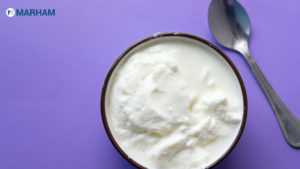Are you afraid of your stomach issues during Ramadan? Do you have stomach-related problems that worsen during Ramadan? And now you are worried again, as Ramadan is approaching. Knowing the best foods for the stomach in Ramadan can help you to prevent stomach and other digestive problems during this holy month.
Although you need not fast due to your illness, it’s better to take good care of your diet to keep your stomach healthy and enjoy the blessings of Ramadan. Fasting is directly related to your digestive system, and fasting is good for your overall health. But if you have any medical condition, you must be vigilant while fasting and eating during Ramadan.
Combining healthy eating with fasting resets your metabolism and can help you lose weight and lower your cholesterol. Similarly, fasting also helps remove toxins from your system, and fasting is also good for your digestive system.
Fasting is not harmful to your stomach conditions; instead, your eating habits and diet can influence your stomach. So it is essential to know the best foods for your gut that keep you healthy during Ramadan.
To meet the amount of energy and nutrients your body requires during the day during Ramadan, eat foods high in protein, carbohydrates, vitamins, and minerals, and drink plenty of water.
But choosing what to eat is the primary key to your health during Ramadan. Your dietary choices can make Ramadan and fast beneficial for you, or sometimes your wrong selection of foods can make you ill during Ramadan.
Best Foods For The Stomach In Ramadan:
Here is a list of 5 best foods for your stomach in Ramada;
Dates:
Eating dates at the time of sahoor and aftaar is the sunnah of the Holy Prophet (P.B.U.H). Dates have a lot of health benefits that are increased when you eat them while breaking your fast. They are high in fiber, so eating 2-3 dates on an empty stomach (while breaking fast) can help you get rid of constipation. Dates aid in the bowel movement of normal stool, thereby preventing constipation.
Dates are also suitable for preventing inflammation of your digestive tract. Dates are also good for your stomach acidity.
Yogurt:
Yogurt is served at the time of sahoor and aftar on every table. We all know that yogurt is full of probiotics that are good for your digestive system. Yogurt also helps control your stomach acidity, and it prevents constipation and bloating.
Yogurt also controls your thirst during fasting. So eating a generous amount of yogurt in the sahoor can help you stay hydrated during Ramadan.

Water:
Water is the most healthy but straightforward gift you can give to your stomach during Ramadan. Instead of sugar-loaded juices, drinks, and cold drinks, you should drink a lot of water during Ramadan. Drinking the water at the time of sahoor and aftaar can help your stomach function properly the whole day during fasting.
Water also prevents constipation, acidity and controls many other stomach-related problems. That’s why drinking water while breaking the fast instead of sugary drinks keeps your stomach healthy.
Fruits And Vegetables:
Fruits and vegetables have high fiber content that is good for digestion. Fruits like bananas, apples, guava, melons, etc., are suitable for your stomach as they control the acidity and help in the normal digestion process. Similarly, vegetables in raw form are also good for your gut.
Chick-peas:
Chickpeas in the form of chaat or salads are also a good option for your stomach during Ramadan. Don’t add too many spices to your chaat; rather, keep it simple and get benefits from them. Chickpeas have lots of fiber in it that is good for your digestion, and they give you a feeling of fullness that is helpful during fasting.
Which Foods Should Be Avoided During Ramadan?
If you want to keep your stomach in good condition, you need to avoid these food items during Ramadan;
- Avoid fried items during sahoor and aftaar timings. Eating pakoras and samosas is undoubtedly a pleasant experience on the aftaar, but it affects your stomach health. That’s why you should avoid fried items as much as you can.
- Avoid sugar-filled drinks and beverages.
- Don’t add too many spices and salt to your food during Ramadan. Spices and salt are not suitable for your stomach and overall health. Herbs can trigger stomach ulcers and acidity. That’s why add the minimum amount of salt and spices to your food.
Healthy living habits help maintain your health during Ramadan. And if you are a patient having stomach issues, you should be more careful while selecting food items for your sahoor and aftaar. You can consult the gasroenetrologist, who can help you in treating your stomach related problems before Ramadan, so that you can enjoy the blessings of this month.
Book an appointment now to answer all your queries. You can book an appointment with the top Gastroenetrologist in Karachi through Marham by calling the Marham helpline: 0311-1222398 or by online booking facility through the website or Marham mobile app.
| Android | IOS |
|---|---|
 |
 |
FAQs
-
Can I have stomach problems during Ramadan?
Yes, if you do not eat healthy food and eat fried items, spicy foods, sugar filled meals, etc., you can suffer from stomach problems during Ramadan.
-
What are the best foods for stomach in Ramadan?
Dates, yogurts, oatmeal, chickpeas, water, wholewheat bread, are some of the best foods for your stomach in Ramadan.
-
How to control stomach acidity in Ramadan?
You can control stomach acidity by avoiding fried foods, sugary drinks, spices, etc. in Ramadan.

